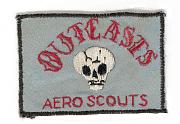Culture battle: Selective use of history should not be used to justify the status quo by COL. Henry J. Foresman JR. in Armed Forces Journal.
Video teleconferences, meetings and PowerPoint presentations are how decisions are made in the Pentagon. No decision is made without countless hours spent making slides by "action officers" and countless revisions by those above them. No decision is made until all the general officers are on board. No decision is made without total agreement. Staffing actions are routinely sent back to the drawing board because some general has a better idea, further slowing a process that already moves at a snail's pace. The system is not designed for quick decisions, as all decisions must work their way through a vast bureaucracy before the ultimate decision can be made. Decisions are made in a system designed for an Army at peace, not an Army at war.
As I have mentioned, transformation is more than organizational change — it is a change to how we think of war. The greatest threats to transformation are those who would turn back the hands of time to an earlier day when the Army would concentrate on fighting major combat operations or grand wars and ignore the rest.
Wars of the 21st century will not be state-on-state but rather will involve states taking on organizations and groups that share a common ideology, culture and outlook and to whom the state, and state boundaries, mean nothing. They will wage their wars, holy or otherwise, wherever they must so that they can achieve their goal, whether it be greater Islam or otherwise. They do not wear the uniforms of a state, nor do they fight in the same manner as conventional armies. The wars of the 21st century will not be fought on the open plains of Europe or in vast sands of Middle East. They will be fought in the urban sprawl of our increasingly urban planet. They will be battles for the hearts and minds of a local populace where the U.S. and the Army will be seen as the invader and occupier and not as the liberator.









 ) who dominate these alliances (first Britain then the US), these hegemons have rarely had a complete dominance of the other nations in the alliance and, as such, individual "national interests, while important, have not dominated the alliance. BTW,think back to Macciavelli and the differences between a "first amongst equals" power structure and a "god king" power structure.
) who dominate these alliances (first Britain then the US), these hegemons have rarely had a complete dominance of the other nations in the alliance and, as such, individual "national interests, while important, have not dominated the alliance. BTW,think back to Macciavelli and the differences between a "first amongst equals" power structure and a "god king" power structure.

 . I do think, however, that the geo-politics becomes crucial when we have such different situations. At the level of immediate operations the analogy is good, but the long term resolution is, however, wildly different.
. I do think, however, that the geo-politics becomes crucial when we have such different situations. At the level of immediate operations the analogy is good, but the long term resolution is, however, wildly different.






Bookmarks